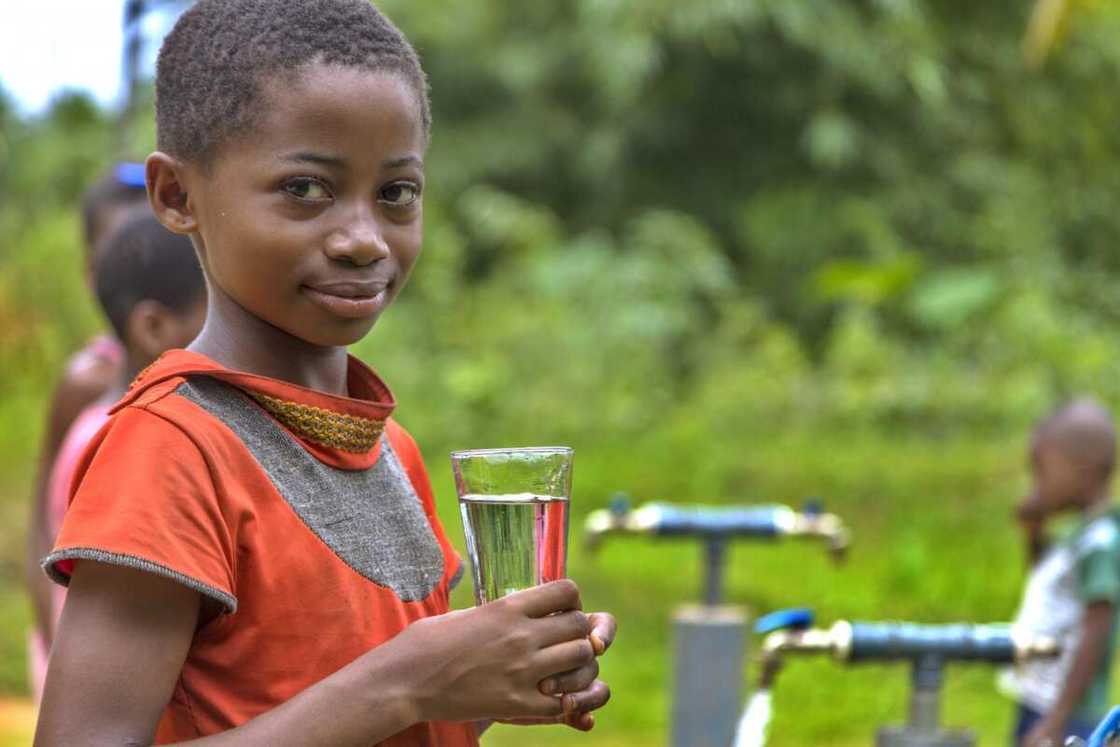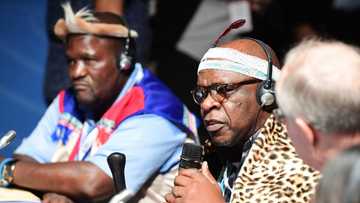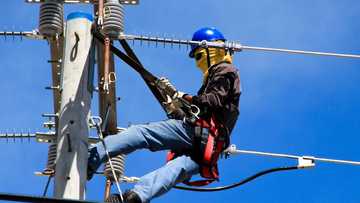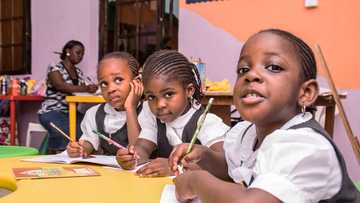State of access to effective water, sanitation and hygiene in Nigeria's urban areas by Olivia Samuel
Editor's note: Journalist Gift Olivia Samuel, writes on the state of access to effective water, sanitation and hygiene in Nigeria's urban areas, with a focus on the contributions of civil society organisation, Connected Development.
PAY ATTENTION: Win a prize of N115,000, N75000 or N38000: participate in Big Naija Independence contest by Legit.ng
Access to clean drinking water, sanitation and hygiene is important in maintaining health, but in many countries, the amount of water available to each person is falling, as population rises, leading to a decline in water quality as well as proper hygiene.
According to a 2017 report by the World Health Organization (WHO) and the United Nations International Children's Emergency Fund (UNICEF), some 3 in 10 people worldwide, or 2.1 billion, lack access to safe drinking water at home; and 6 in 10, or 4.4 billion people lack safely managed sanitation. Also, the UNESCO Water World Assessment Programme notes that lack of safe drinking water is a major cause of illness and mortality, as a result of exposure to infectious agents, chemical pollutants, and poor hygiene.
In Nigeria, out of a population of more than 203 million people, 71 million do not have access to clean water and 130 million of them do not have access to basic sanitation, according to the Research Triangle Institute.

Source: Twitter
Limited access to improved water and sanitation, according to UNICEF, remains a major contributing factor to high morbidity and mortality rates among children in Nigeria, as consuming contaminated drinking water and poor sanitary conditions result in increased vulnerability to water-borne diseases, including diarrhoea which leads to deaths of more than 70,000 children under five annually. It further stated that frequent episodes of WASH-related sickness in children, contribute to absenteeism in school, and malnutrition.
Universal, affordable and sustainable access to Water, Sanitation and Hygiene (WASH) is a key public health issue within international development and is the focus of the United Nations Sustainable Development Goal 6 (SDG 6), which aims to 'Ensure access to water and sanitation for all'. Target 6.1 aims to achieve universal and equitable access to safe and affordable drinking water for all by 2030, while target 6.2 seeks to achieve access to adequate and equitable sanitation and hygiene for all, and end open defecation, paying special attention to the needs of women and girls and those in vulnerable situations by 2030. For Nigeria to achieve the SDG Goal 6 by 2030, extraordinary efforts are required to ensure an increase in the population that uses improved drinking water and sanitation facilities.
The advantages of clean water, basic toilets and good hygiene practices cannot be overemphasized. They are a necessity and essential for the survival and development of children in any society. Although rural areas are mostly affected when it comes to WASH, there are also WASH issues in Nigeria's urban areas which are becoming overpopulated due to the rural-urban migration for better livelihood.
Nigeria is confronted with many challenges in the water supply sector, and part of the challenges contributing to the urban WASH issues in Nigeria is the persistent growth in population and urban migration which has increased the urban population figure beyond projection. In addition, low budget and inadequate investment in water infrastructure, poor policy implementation, issue of political interference and limited technical knowhow of relevant government Ministries, Departments and Agencies, and lack of political will, also contribute to the current low access to safe water supply in the country.
Presently, there is an acute water shortage in the urban areas, with the bulk of the available water supplies unmetered, while those metered are charged ridiculous rates, which points to the fact that a management policy that will enhance financial viability and economic efficiency to meet increasing production and distribution costs, is a necessity.
According to Action Aid studies, Nigeria is witnessing rapid urbanisation at the rate of 3.7% with about 50% of the population living in urban areas in overcrowded settlements, without commensurate investment in infrastructure and basic services to cater for their well being.
With a large part of Nigeria's population still living without access to WASH, there is a need to improve funding for water infrastructure in rural and suburban areas, and Effective Water, Sanitation and Hygiene Services (E-WASH) is necessary to improve the availability of clean water and sanitation in Nigeria’s poorest urban neighbourhoods. On October 24, 2018, the United States Agency for International Development (USAID) launched the Effective Water Sanitation and Hygiene Services (E-WASH Program) in six Nigerian states to address the poor delivery of WASH services in Nigeria's urban areas, and to improve the hygiene and health of the population.
Through the $60.4 million E-WASH activity, USAID is supporting the states to increase access to clean water and reduce diseases by strengthening their water b’ capacity to make solid investment decisions, improve billing and collection systems, and ensure greater responsiveness to customer concerns.
E-WASH, which is one component of a wider USAID effort to foster closer coordination with federal and state government agencies to advance broad-based economic growth and resilience in Nigeria through improved WASH services, will help address the often-overwhelming challenge of urbanization. Over four years, USAID’s E-WASH will spur the mobilization of an additional $50 million from public and private sources, and also provide access to piped clean water to at least 500,000 households.
In order to contribute to the realization of the broader outcomes of the E-WASH program, Connected Development (CODE) is working with USAID to strengthen policy, institutional, and regulatory frameworks for improved WASH services; as well as building national and state WASH advocacy, coordination, and communications for reform in three States, namely, Niger, Taraba and Sokoto states.
CODE, a non-government organization which provides marginalized and vulnerable communities with resources to amplify their voices with independence and integrity, will be leveraging on its citizen mobilization and multidimensional engagement expertise, resources and strategies, as well as its social accountability innovation, 'Follow The Money,' to broaden collaborations between relevant government agencies, State Water Boards (SWB), lawmakers, community-based associations/organizations (CBA/O), Water Consumer Associations and the general public, to enhance urban water service delivery.
Some of the states USAID E-WASH is supporting to improve access to water in urban areas includes; Taraba, Delta, Niger, Sokoto and Imo and Abia. In Taraba state, USAID joined Governor Dairus Dickson Ishaku to formalize a new partnership to improve the management and delivery of water and sanitation (WASH) services to help people live healthier lives through reliable access to clean water. Following this, a Memorandum of Understanding was signed online on May 21, 2020, outlining commitments between USAID and Taraba state to jointly develop a professionally managed, commercially oriented, and accountable state water board, which will be accomplished by improving the water board financial viability, and strengthening policy, institutional, and regulatory frameworks for better WASH service delivery.
In Delta state, although Governor, Ifeanyi Okowa has inaugurated the steering committee for the Water Supply, Sanitation & Hygiene, and passed the State WASH bill to law, the State WASH System has recorded slow progress in implementing policies that will ensure the consistent provision of clean and safe water and improved sanitation facilities for its residents. Connected Development [CODE], with support from the USAID-EWASH, in a visit to the state, appealed to policymakers to eradicate bottlenecks and fast-track the implementation of the WASH policies, noting that it is an avenue to build the trust of citizens in public services.
Also, in Niger state, Governor Abubakar Sani Bello, signed into law a bill establishing a new State Water and Sewerage Corporation, an entity that will replace the existing state water board. It was enacted to improve urban water delivery and sanitation services. He also reviewed and re-approved an updated WASH policy from 2017 that better reflects Niger’s needs in 2020. The restructuring of the water management entity into a corporation will see to it that services are provided more effectively in urban areas of Niger state.
Furthermore, on July 16, 2020, USAID mission director Stephen M. Haykin joined Governor Hope Uzodinma in a virtual signing ceremony to formalize a new partnership with Imo state to improve the management and delivery of WASH services, where Governor Uzodinma acknowledged that up to 85 per cent of his rural constituents lack access to a reliable source of running water, and expressed hope that within a year the activity could reach up to 100,000 residents of the state. USAID, through E-WASH, is also helping to increase access to clean water and reduce waterborne disease in Imo state, feeding into their mutual goal of creating a healthier, more economically robust Nigeria.
As the access to piped water and improved sanitation decreased in recent years, significantly in urban areas, suggesting an erosion of utility coverage, USAID E-WASH is working with the Federal Ministry of Water Resources (FMWR), selected State Water Boards (SWBs), and allied stakeholders, in order to advance broad-based economic growth and resilience through improved WASH services in urban areas. They are also committed to working with state and local water agencies, non-governmental organizations, communities and the private sector to create an enabling environment that will put Nigeria on the path to achieving universal access to water, sanitation and hygiene practices as well as reduce open defecation.
PAY ATTENTION: Install our latest app for Android, read best news on Nigeria’s #1 news app
To ensure accountability and transparency, CODE and USAID are holding state governments to account to pass the WASH bills in their various states to ensure eradication of open defecation, the provision of WASH facilities in schools and strategic public spaces, as well as the reduction of water-borne diseases.
On the part of the Nigerian government, there is a need to be more responsive to the yearnings of the people in providing WASH services both in rural and urban areas, as reliable safe drinking water, adequate sanitation, and good hygiene surely would prevent avoidable loss of lives.
Based on World Bank estimates, Nigeria will be required to triple its budget or at least allocate 1.7 per cent of the current Gross Domestic Product to WASH. E-WASH is necessary to improve the quality of life of men, women and children, and the Nigerian government needs to also prioritize women and girls as well as people living with disabilities in the WASH project, as these set of people are mostly affected by poor hygiene practices which can lead to diseases and even death. Open defecation is a slight to the dignity, health and well-being, especially of girls and women, it is a risk to public health and also exposes women, girls and people living with disabilities to increased sexual exploitation.
Both federal and state governments should ensure that women and girls have access on a daily basis to a toilet and water – at home and work, and in public places such as schools, health centres and markets, so as to give them privacy when they are menstruating as well as protect their dignity.
Also, State Water Boards and the Federal Ministry of Water Resources should, as a matter of urgency, provide equitable access to WASH services, efforts should be strengthened by the government, especially the ministry of environment, to eradicate the practice of open defecation.
Local Government leaders, as well as community heads, should tailor community approaches to total sanitation in their communities, they should also take ownership of WASH public utility projects, use and maintain them well to avert outbreaks in their communities. Improved delivery of water supply services and improved local governments’ ability to regulate, manage and expand sanitation services through activities like E-WASH is necessary.
The capacity of national and subnational bodies to develop and implement equitable and gender-sensitive WASH policies, strategies and guidelines should be strengthened. States that have not passed the WASH bill into law should do so, and those that have passed should implement policies that will ensure the consistent provision of clean and safe water and improve sanitation facilities for their residents. There is also the need for adequate funding and significant household contribution to eliminating open defecation.
If Nigerians can have access to effective water, sanitation, and hygiene services, we will also have a healthier and safer environment, particularly for women and children, the impact of waterborne diseases and hygiene-related illnesses will reduce drastically and we will have a healthy nation.
Your own opinion articles are welcome at info@corp.legit.ng— drop an email telling us what you want to write about and why. More details in Legit.ng’s step-by-step guide for guest contributors.
Contact us if you have any feedback, suggestions, complaints or compliments. We are also available on Twitter.
Angry lawyers join EndSARS protest in Lagos | Legit TV
Source: Legit.ng






